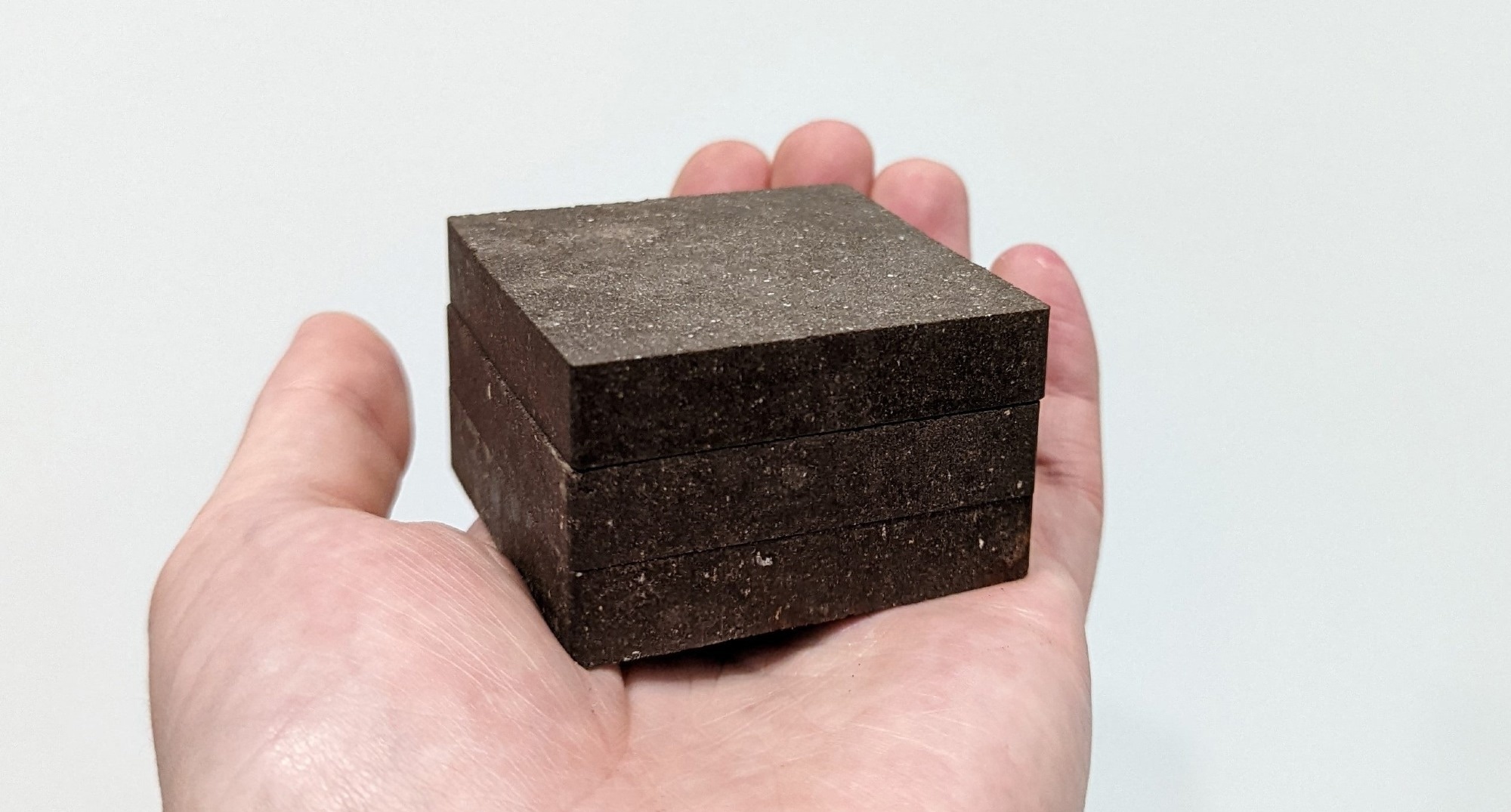
Image Credit: The University of Manchester.
Presently, building infrastructure in space is exorbitantly expensive and difficult. Future space construction will have to depend on simple materials that astronauts can easily access; StarCrete is one possible solution.
The researchers used simulated Martian soil, potato starch, and a pinch of salt to create a material that is twice as strong as ordinary concrete and is ideal for construction work in extra-terrestrial environments.
The research group illustrated that regular potato starch could indeed behave as a binder when mixed with simulated Mars dust to create a concrete-like material. When examined, StarCrete had a compressive strength of 72 Megapascals (MPa), which is more than twice as strong as ordinary concrete’s 32 MPa. StarCrete made from moon dust was even stronger, measuring more than 91 MPa.
The study was published in the journal Open Engineering.
The current research was based on previous research from the same group in which they used astronauts’ blood and urine as a binding agent. While the final material had a compressive strength of roughly 40 MPa, which is higher than typical concrete, the procedure had the disadvantage of requiring blood on a regular basis. When operating in a hostile environment like space, this option was deemed less feasible than using potato starch.
Since we will be producing starch as food for astronauts, it made sense to look at that as a binding agent rather than human blood. Also, current building technologies still need many years of development and require considerable energy and additional heavy processing equipment which all adds cost and complexity to a mission. StarCrete doesn’t need any of this and so it simplifies the mission and makes it cheaper and more feasible. And anyway, astronauts probably don’t want to be living in houses made from scabs and urine!
Dr. Aled Roberts, Research Fellow, Future Biomanufacturing Research Hub, The University of Manchester
Dr. Aled Roberts is also the lead researcher for this project.
A sack (25 kg) of dehydrated potatoes (crisps) contains enough starch to produce nearly half a ton of StarCrete, which is similar to over 213 bricks of material, according to the team. In comparison, a three-bedroom house requires approximately 7,500 bricks to construct. They also discovered that a common salt, magnesium chloride, obtained from the Martian surface or astronaut tears, dramatically improved the strength of StarCrete.
The next stages of this project will involve channeling StarCrete from the lab to the application. Dr. Roberts and his team have recently launched DeakinBio, a start-up company that is looking into ways to improve StarCrete so that it can be used in a terrestrial setting.
If used on Earth, StarCrete could provide a more environmentally friendly alternative to traditional concrete. Cement and concrete account for about 8% of global CO2 emissions because the manufacturing process necessitates extremely high firing temperatures and large amounts of energy.
StarCrete, on the other hand, can be made in a regular oven or microwave at normal “home baking” temperatures, resulting in lower production energy costs.
Journal Reference:
Roberts, A. D. & Scrutton, N. S. (2023). StarCrete: A starch-based biocomposite for off-world construction. Open Engineering. doi.org/10.1515/eng-2022-0390.